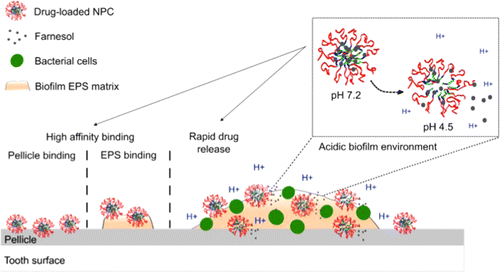Nanotechnology will save people from tooth decay

American researchers from the University of Rochester and Pennsylvania have found a new tool to combat plaque. They adapted spherical nanoparticles to deliver drugs to the surface of the teeth, stopping the work of harmful bacteria, the activity of which damages tooth enamel.
Bacteria Streptococcus mutans form a biofilm on the surface of the teeth and secrete acid during the life process, which gradually corrodes the tooth enamel. This leads to tooth decay, and ultimately to tooth loss.
Scientists have managed to create nanospheres filled with medicine, which are attached both to tooth enamel and to a biofilm formed on its surface. As a result of the external environment, the shell of the spheres weakens and releases the medicine, farnesol (which, by the way, has the smell of lilies of the valley). Thus, the greatest drug yield occurs in areas with the highest chemical activity - that is, where it is most needed.
Tests on rats showed that using the new drug method twice a day can significantly reduce the size and number of tooth injuries. Under the influence of medicinal nanocapsules, the biofilm decomposes, and not only reduces the release of acid, but also is more successfully removed by mechanical influences, in particular, when brushing your teeth. It is interesting that such an effect is observed only when capsules are used to deliver the medicine to the destination - the administration of free farnesol has almost no effect.
The method also allows you to fight with a biofilm from bacteria that occurs on the surface of medical devices such as orthopedic implants.
It is hoped that in the near future, science will free people from the suffering associated with both the deterioration of the teeth and the need to pay for inappropriately expensive dental services.
